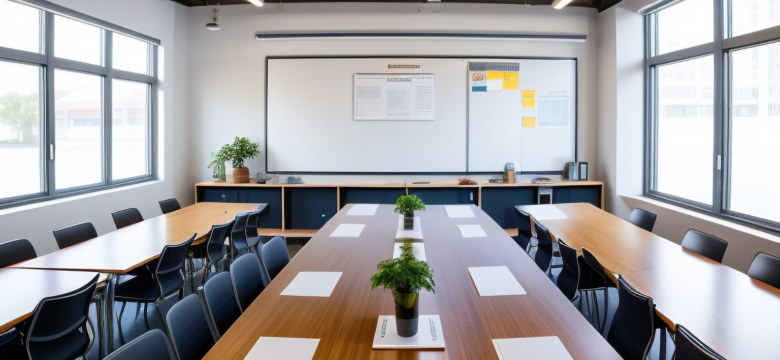Are you ready to transform your workshops into unforgettable experiences? This article explores innovative workshop ideas designed to enhance your skills and establish you as an authority in your field. Imagine walking into a room where your audience is not just listening, but actively participating, buzzing with excitement and curiosity. Engaging methods can captivate your audience and share your expertise effectively, turning you into the go-to expert they remember.
Think about it: what makes a workshop truly impactful? It’s not just about the content; it’s about the connection you create with your participants. By incorporating interactive elements and leveraging technology, you can create an atmosphere that fosters learning and collaboration. From virtual breakout sessions to hands-on activities, the possibilities are endless.
Moreover, establishing a safe space where everyone feels valued and heard is crucial. This not only encourages open communication but also enriches the learning experience. As you master effective facilitation skills, you’ll find that guiding discussions becomes a natural extension of your expertise. So let’s dive into these workshop ideas that will not only elevate your skills but also position you as the expert in the room!
Interactive Learning Techniques
Utilising can significantly enhance participant engagement and make your workshops more memorable. Imagine a room buzzing with energy, where attendees are not just passive listeners but active contributors. This dynamic environment can be achieved through various methods that promote active involvement and deeper understanding of the subject matter.
One effective approach is to incorporate group discussions, where participants can share their thoughts and experiences. This not only fosters a sense of community but also encourages diverse perspectives. Additionally, consider integrating role-playing activities. These allow participants to step into different shoes, providing them with a unique viewpoint and a more profound grasp of the concepts being taught.
Hands-on activities are another fantastic way to engage your audience. Whether you’re conducting a science workshop or a creative writing session, allowing participants to experiment and create can lead to powerful learning experiences. For instance, in a marketing workshop, you could have attendees develop a mini-campaign in small groups, which promotes collaboration and practical application of their newfound knowledge.
In summary, by incorporating these interactive techniques, you can transform your workshops from mundane lectures into vibrant learning experiences. Remember, the more involved your participants are, the more they will take away from the session!
Leveraging Technology
In today’s fast-paced world, in your workshops is not just a bonus; it’s a necessity. Imagine walking into a room where every participant is not only engaged but also actively collaborating through various digital tools. This is the power of technology! By integrating platforms such as Zoom or Microsoft Teams, you can facilitate virtual collaboration that transcends geographical barriers. How amazing is that?
Moreover, tools like Mentimeter or Kahoot! can transform mundane presentations into interactive experiences, allowing participants to provide real-time feedback and answer polls during your session. This immediate interaction keeps the energy high and ensures everyone feels involved. Think of it as turning your workshop into a lively conversation rather than a one-sided lecture.
Additionally, consider using project management tools such as Trello or Asana to streamline tasks and enhance productivity. These platforms not only help in organising content but also foster collaboration among participants. By employing technology, you’re not just teaching; you’re creating an immersive learning environment that resonates with your audience long after the workshop ends.
Creating a Safe Space
Creating a safe space during your workshops is crucial for fostering an environment where participants feel comfortable expressing themselves. Imagine walking into a room where everyone is ready to share their thoughts without fear of judgement—this is the essence of a safe space. To achieve this, you need to establish ground rules that promote respect and openness. Start by encouraging participants to share their ideas and experiences, reminding them that every contribution is valuable.
It’s also important to actively listen and validate feelings. When participants know that their voices are heard, they are more likely to engage in meaningful discussions. You might consider using techniques like icebreakers or small group discussions to help break down barriers. Additionally, be mindful of non-verbal cues; a warm smile or nod can go a long way in making someone feel included.
Here are some strategies to help create that inviting atmosphere:
- Encourage open communication by asking questions that invite diverse perspectives.
- Address any concerns immediately to prevent discomfort from escalating.
- Celebrate contributions, no matter how small, to build confidence among participants.
By prioritising a safe space, you not only enhance the learning experience but also position yourself as a trusted facilitator. This trust will encourage participants to share their insights and experiences, enriching the workshop for everyone involved.
Effective Facilitation Skills
Mastering facilitation skills is like being the conductor of an orchestra; you need to harmonise various elements to create a beautiful symphony of ideas and insights. Whether you’re leading a workshop or a simple team meeting, your ability to guide discussions smoothly can make all the difference. Imagine trying to steer a ship through stormy waters—without the right skills, you might just end up lost at sea!
One of the key aspects of effective facilitation is managing group dynamics. It’s essential to recognise the different personalities in the room and adapt your approach accordingly. For instance, you might encounter:
- The Quiet Thinker: They may need gentle encouragement to share their thoughts.
- The Dominant Speaker: You’ll want to ensure they don’t overshadow others.
- The Skeptic: Addressing their concerns can lead to deeper discussions.
Encouraging participation is another vital skill. You can achieve this by asking open-ended questions that invite everyone to contribute. Instead of saying, “Do you agree?” try, “What are your thoughts on this?” This simple shift can transform the atmosphere, making it more inclusive and engaging.
Lastly, navigating challenging conversations is crucial. Sometimes, discussions can become heated or uncomfortable. Your role as a facilitator is to steer these conversations back on track, ensuring that all voices are heard while maintaining a respectful environment. Remember, it’s not about being the expert in the room—it’s about empowering others to share their expertise!
Feedback and Improvement
Gathering feedback is not just a formality; it’s the lifeblood of enhancing your workshops. Think of it as checking your compass on a road trip—without it, you might veer off course! By actively seeking participant insights, you gain invaluable perspectives that can refine your approach and elevate the learning experience. Consider using tools like surveys or feedback forms right after the session to capture thoughts while they’re still fresh. You could ask questions such as:
- What did you find most valuable?
- How could the workshop be improved?
- Were the objectives clear and met?
Once you’ve collected this data, it’s essential to analyse it systematically. Create a feedback table to track responses and identify trends. For instance:
| Feedback Aspect | Positive Comments | Areas for Improvement |
|---|---|---|
| Content Relevance | Engaging and informative | More examples needed |
| Facilitation Style | Encouraged participation | Manage time better |
By implementing changes based on this feedback, you not only enhance future sessions but also solidify your reputation as an expert in your field. Remember, the goal is to create a cycle of continuous improvement, where each workshop builds upon the last, leading to a richer, more engaging experience for everyone involved!
Networking Opportunities
Workshops are not just about imparting knowledge; they are also a fantastic chance to build connections and expand your professional network. Imagine stepping into a room filled with like-minded individuals, all eager to share their experiences and insights. This environment creates a unique opportunity for collaboration that can lead to exciting projects and partnerships.
To maximise networking during your workshop, consider incorporating specific activities designed to foster interaction. For instance, you could organise icebreaker sessions or small group discussions where participants can share their backgrounds and interests. This not only makes everyone feel more at ease but also encourages the exchange of ideas and contact information.
Additionally, creating a dedicated networking space can enhance the experience. Set up a casual area with refreshments where participants can mingle during breaks. This informal setting often leads to meaningful conversations that might not happen in a more structured environment.
Remember, the goal is to cultivate relationships that extend beyond the workshop. By encouraging participants to connect, you’re not just enhancing their experience; you’re also establishing yourself as a central figure in a growing community of professionals. Ultimately, these connections can lead to opportunities that benefit everyone involved.
Follow-Up Strategies
Implementing effective can truly be the game changer for your workshops. Think of it as the icing on the cake; it not only enhances the learning experience but also solidifies your reputation as an expert. After the workshop, it’s essential to keep the momentum going. One way to do this is by sending out a personalised email to participants, thanking them for their involvement and inviting them to share their thoughts. This simple act can create a lasting impression.
Moreover, consider developing post-workshop resources such as worksheets, recorded sessions, or additional reading materials. This not only reinforces what was taught but also encourages participants to revisit the content. You might also want to create an online forum or group where attendees can continue discussions and share insights. This helps to foster a sense of community and keeps the conversation alive.
In addition, regular check-ins can be beneficial. You could schedule a follow-up meeting or send out a survey to gather feedback on how they are applying their newfound knowledge. This not only shows that you care about their progress but also provides you with invaluable insights to refine your future workshops. Remember, the key is to keep the lines of communication open and to make participants feel valued long after the workshop has ended.
Frequently Asked Questions
- What are some interactive learning techniques I can use in my workshop?
You can incorporate group discussions, role-playing, and hands-on activities. These methods encourage active participation and help participants grasp the concepts more effectively.
- How can technology enhance my workshop experience?
Technology can streamline your processes by facilitating virtual collaboration, enabling interactive presentations, and providing real-time feedback. This keeps participants engaged and makes learning more dynamic.
- Why is creating a safe space important during workshops?
Establishing a safe and inclusive environment encourages open communication and diverse perspectives. It allows participants to express their thoughts freely, which enhances the overall learning experience.
- What are effective facilitation skills I should master?
Focus on managing group dynamics, encouraging participation, and navigating challenging conversations. These skills are crucial for guiding discussions smoothly and ensuring a productive workshop.
- How can I gather feedback from participants?
You can use surveys, feedback forms, or informal discussions to collect insights. This feedback is essential for refining your approach and improving future workshops.
- What networking opportunities do workshops provide?
Workshops allow both facilitators and participants to connect, collaborate, and build lasting relationships. This can significantly enrich your professional network and open doors for future opportunities.
- What follow-up strategies can I implement after the workshop?
Design post-workshop resources, facilitate ongoing discussions, and encourage participants to apply their knowledge in real-world scenarios. This helps reinforce learning and maintain engagement.





